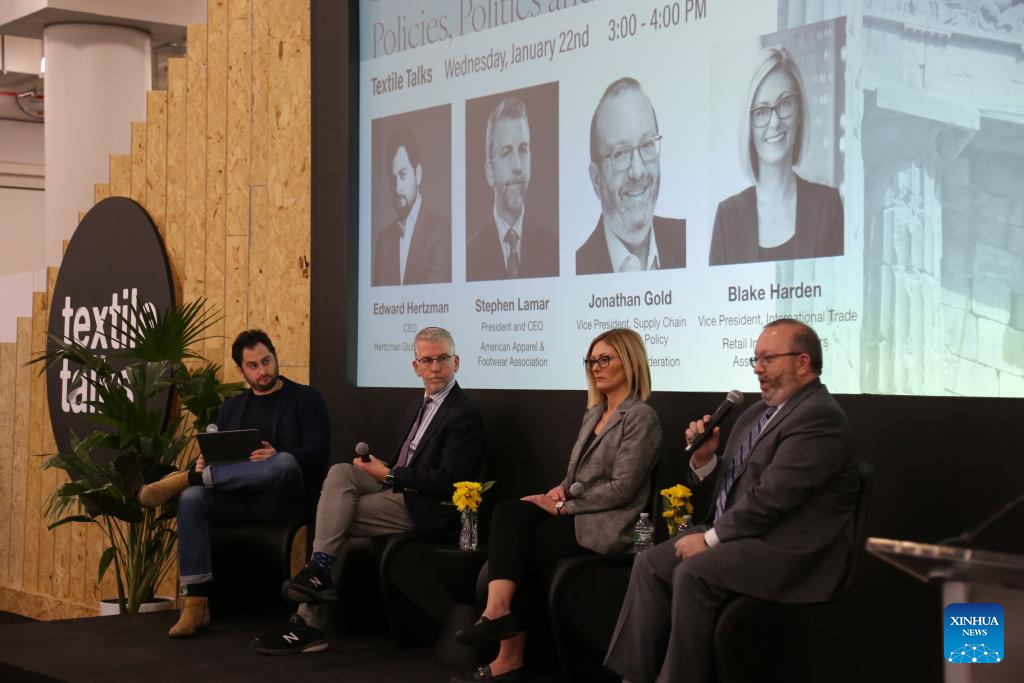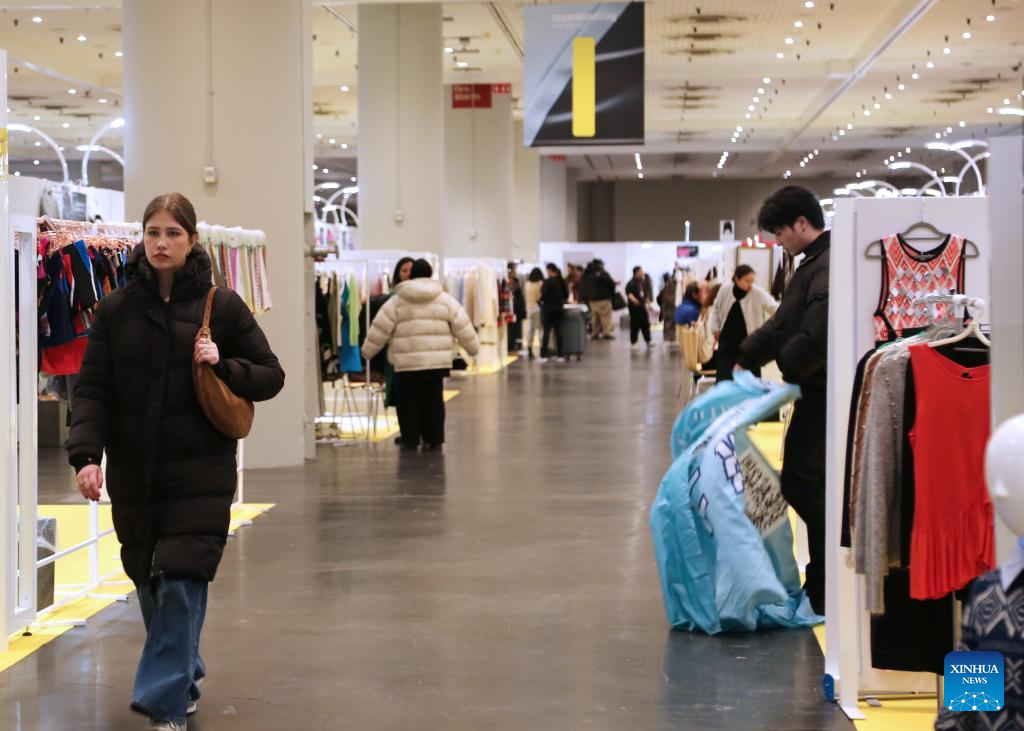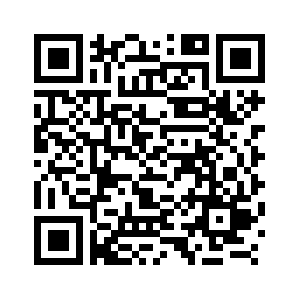
Jonathan Gold, vice president of supply chain and customs policy at the National Retail Federation, speaks at a panel discussion of Texworld NYC in New York City, the United States, on Jan. 22, 2025. Industry insiders from the United States and other countries have warned against additional U.S. tariffs on textiles and apparels. (Xinhua/Liu Yanan)
by Xinhua writer Liu Yanan
NEW YORK, Jan. 24 (Xinhua) -- Industry insiders from the United States and other countries have warned against additional U.S. tariffs on textiles and apparels.
Although there probably was a sense of relief that U.S. President Donald Trump did not make a tariff announcement on inauguration day on Monday, anxiety remains because tariffs may still come, said Stephen Lamar, president and chief executive of American Apparel & Footwear Association.
Speaking at a panel discussion on Wednesday at Texworld NYC, the largest textile and apparel sourcing trade show on the East Coast, Lamar said, "The uncertainty is really adversely affecting a lot of people, because they want to make decisions and it's hard to make decisions when you're still not sure what is going to be happening coming forward."
Tariffs, if imposed, are literally a tax that is put into the supply chain and somebody has to pay for it, said Lamar.
Ultimately, tariff ends up going back to the consumers, added Lamar, who saw tariff and regulation as two main cost drivers for the supply chain in 2025.
Trump threatened to impose universal tariffs of 10 percent to 20 percent on all imported goods during his presidential campaign in 2024.
Jonathan Gold, vice president of supply chain and customs policy at the National Retail Federation, shared the concern.
Tariffs do raise costs because they are not paid by a foreign government, country or entity, but paid by U.S. importers, he said.
Those tariff increases are too big for the importers themselves to absorb, and they are going to have to pass on those costs, whether directly or indirectly, to the final consumers, Gold added.
The memorandum titled "America First Trade Policy" issued by Trump on Monday is "certainly a warning to, frankly, allies and adversaries that this administration is contemplating a wide range of tariffs for a whole host of reasons," said Blake Harden, vice president for international trade at the Retail Industry Leaders Association.
If Trump follows through his threat and imposes a 25-percent tariff on imports from Mexico and Canada, the impact would be more for the final customers, said Carlos Couttolenc Lopez, president of Textiles La Libertad, a Mexican textile company participating in Texworld NYC.
Lopez told Xinhua that he would have to increase prices or the buyer will have to take care of the additional tariff, which will reflect on the final price of the garment.
It will be hard for free trade among Mexico, the United States and Canada if the United States introduces tariffs, said Lopez, who is also director general of a textile cluster named iTEXCON.
Lopez runs a three-generation business of around 160 employees, and the United States takes around 40 percent of his market share but with only a single-digit profit margin currently.
"We are concerned, but we have to wait. We can't do anything about it at the moment. If they implement the tariffs, we will have to work on how to solve the problem with our American customers," Lopez said.
People are concerned that the new U.S. administration will impose additional tariffs on goods coming from other countries to the U.S. market, said Vuong Duc Anh, an executive of the Vietnam National Textile and Garment Group.
"The new president would have very careful consideration, because when (you) increase tariff rate, the U.S. consumer would bear that cost," Anh told Xinhua.
If a new tariff comes, inflation may come back and this will put pressure on the Federal Reserve with regard to its plan to further cut interest rates, according to Anh.
"I hope that isn't going to happen. But if it happens, we have to accept it. So, we have to find a way to lower our production cost, and we have to find a way to share with our buyer," added Anh. ■

A visitor walks past a booth at Texworld NYC in New York City, the United States, on Jan. 22, 2025. Industry insiders from the United States and other countries have warned against additional U.S. tariffs on textiles and apparels. (Xinhua/Liu Yanan)



